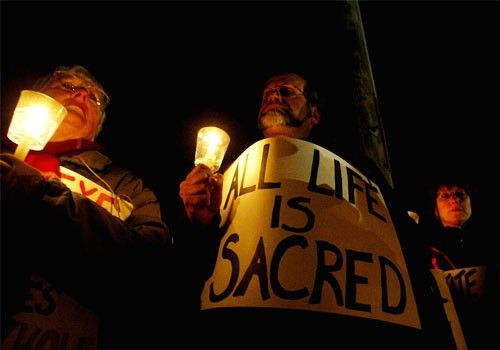US executions continue to decline, 12 pct dip recorded in 2010

Death sentences in the United States continued to decline with just 46 executions in 2010, down 12 percent compared to a year earlier.
The Death Penalty Information Center's (DPIC) new annual report on execution trends attributes the drop in executions to high costs of the death penalty. Some prosecutors reconsidered seeking the death penalty and may have contributed to the decline in death sentences in 2010, it said.
There is a shortage of the drug used in lethal injections, which is also considered as one of the factors that led to the decline.
Whether it's concerns about the high costs of the death penalty at a time when budgets are being slashed, the risks of executing the innocent, unfairness, or other reasons, the nation continued to move away from the death penalty in 2010, said Richard Dieter, the author of the report and executive director of the DPIC.
According to the report, judges handed out 114 death sentences in 2010, slightly higher than the 112 death sentences in 2009 but about half as many as were handed down 10 years ago.
The report also said at the beginning of this year, 3,261 U.S. prisoners were on death row.
The overall execution trend shows a marked drop when compared to the 85 executions in 2000.
Region-wise, death sentences declined in all four regions of the country over the past decade, with a 50 percent decrease nationwide when the current decade is compared to the 1990s.
Texas executed the largest number of inmates in 2010 but still the state xecuted 29 percent fewer inmates in 2010 than in 2009.
Nearly, 40 executions were stayed in 2010, many over whether inmates had been given a full review of their claims, said DPIC.
According to the report, mostly 12 southern states carried out the executions this year and only seven states carried out more than one execution.
The report also noted political candidates who oppose the death penalty were elected in November, including governors in California, Connecticut, Maryland, Massachusetts, New York, Kansas and Illinois.
This year's election results confirm polling data that suggests opposing the death penalty is an acceptable position for elected officials and candidates. Voters hold other issues, such as the economy and jobs, as much higher priorities, Dieter said.
In a poll conducted by Lake Research Partners earlier this year, 61 percent of the public favored some form of life imprisonment and only 33 percent supported the death penalty as the punishment for murder.
© Copyright IBTimes 2025. All rights reserved.





















